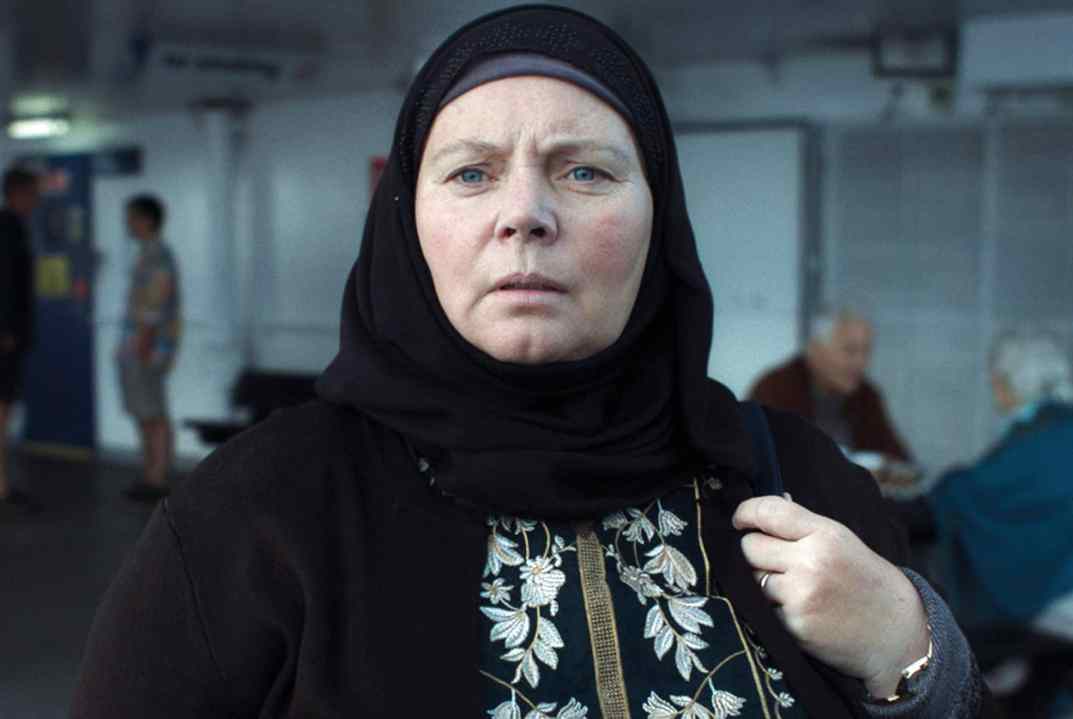As there are no stand-out films this week aside from Kenneth Branagh’s adaptation of Death on the Nile — is that the one where they all did it? Or is that the train one? — I thought I’d alert you to a film that may have slipped under your radar: After Love. It was released last year. It’s a small film, tiny. I don’t know what the budget was but it wasn’t $90 million. Yet it’s already won many awards, rightly, and has just been nominated for three Baftas and is staggeringly confident and powerful. I guess we’ll now never know who did it on that boat. Unless they all did it?
This is a first feature from English-Pakistani filmmaker Aleem Khan. It’s a beautifully restrained yet devastating exploration of love, loss, grief and identity wrapped up in a story that’s not just gripping but also — prepare yourself for a shock: ready? — wholly original.
This film, a first feature from Aleem Khan, is staggeringly confident and powerful
The film stars Joanna Scanlan as Mary, a white Muslim who had converted to marry her husband, Ahmed, a ferry captain. They live in Dover and this opens with a happy domestic scene — they’ve just come in; she makes tea; the talk is of sag aloo and someone’s new baby — but then he suddenly dies. She retreats into stunned grief, listening over and over to a message he once left on her phone while she pretended to be out when friends or family call. Then, on sorting through his things, she discovers that the husband she thought she knew had a second life over in France. She now needs to find out: what is the exact nature of this betrayal?
She travels to Calais with Dover’s cliffs in her mind’s eye crumbling behind her, just as her own quiet certitudes are now crumbling. (Such visual metaphors are used judiciously and occur on only one other occasion when she imagines a ceiling cracking.) Across the Channel she meets Genevieve, a gregarious, sexy Frenchwoman (Nathalie Richard) who has a son, Solomon (Talid Ariss), and is moving house. Now we need to find out: will a relationship develop between these three? Can it?
Scanlan is extraordinary. I don’t know how many pages there are to the script but there can’t be many as much of this is about what isn’t said. There are long stretches of silence, carried purely by a performance that, without words, conjures up this woman’s pain and aloneness and confusion. I’ve made it sound depressingly bleak but, trust me, you won’t be able to look away. In one remarkable scene she stands part naked in front of a mirror and prises aside her sensible underwear (M&S, I’d guess) to inspect her own body. This tells us everything about another great loss she has suffered. The physical body is its own map. OK, it is somewhat depressing and bleak. But it stills stands: you won’t be able to look away.
The film evokes a landscape that feels authentic, born of experience, and in some ways it is. Khan’s own mother converted to marry his father and, like Mary, she first met him when she was 14. Although the story travels elsewhere, this was the starting point. Khan is also gay, so he had kept secrets himself, and everyone has a secret life here. Ahmed, Genevieve, Solomon and even Mary, who is mistaken for a cleaning woman and continues with the deception as it serves her purpose. So it has the ring of truth about it and you desperately want to know how it will pan out. It’s film of the week even though it came out weeks ago. It’s available at Curzon Home Cinema (£4.99) or on the BFI Player where you can sign up to a seven-day free trial. But do remember to cancel or you will be paying monthly for the rest of your born days.







Comments